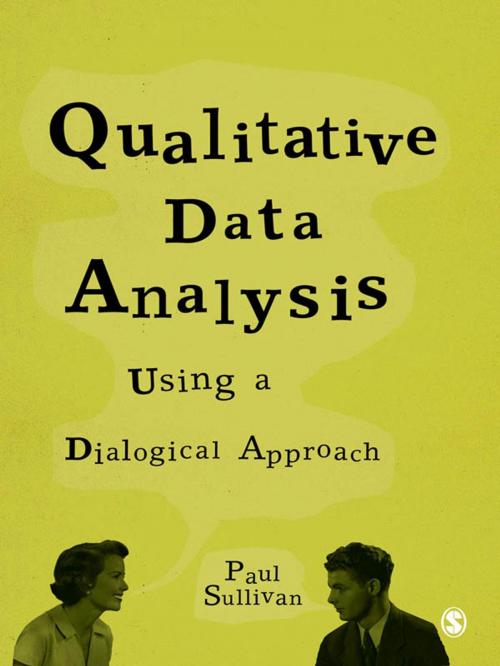Qualitative Data Analysis Using a Dialogical Approach
Nonfiction, Reference & Language, Reference, Research, Social & Cultural Studies, Social Science| Author: | Dr Paul Sullivan | ISBN: | 9781446292273 |
| Publisher: | SAGE Publications | Publication: | December 9, 2011 |
| Imprint: | SAGE Publications Ltd | Language: | English |
| Author: | Dr Paul Sullivan |
| ISBN: | 9781446292273 |
| Publisher: | SAGE Publications |
| Publication: | December 9, 2011 |
| Imprint: | SAGE Publications Ltd |
| Language: | English |
In this important new text, Paul Sullivan introduces readers to a qualitative methodology rooted in the analysis of dialogue and subjectivity: the dialogical approach. Sullivan unpacks the theory behind a dialogical approach to qualitative research, and relates issues of philosophy and methodology to the practical process of actually doing qualitative research.
Sullivan's book foregrounds the role of atmosphere, subjectivity and authorial reflection within texts. His work also enables the researcher to attend to the conflicts, judgments and interpretive activities that take place in language use. Practically speaking, the dialogical approach enables analysis of direct and indirect discourse, speech genres, hesitations, irony and a variety of other conditions that shape our understanding of dialogue in context.
As well as exploring the theory behind this innovative method, Sullivan provides sound practical advice that recognises the everyday analytic needs of the reader.
Topics include:
• The theoretical foundations of the approach
• The role of subjectivity in qualitative research
• Data preparation and analysis
• The future of the approach
Theoretical discussion is consistently accompanied by research examples and suggestions as to how the dialogical approach could be used in the reader's own research. This important and timely book is ideal for any reader who wants to do research with dialogue and who is keen to attend to the full nuances and complexities of discourse.
In this important new text, Paul Sullivan introduces readers to a qualitative methodology rooted in the analysis of dialogue and subjectivity: the dialogical approach. Sullivan unpacks the theory behind a dialogical approach to qualitative research, and relates issues of philosophy and methodology to the practical process of actually doing qualitative research.
Sullivan's book foregrounds the role of atmosphere, subjectivity and authorial reflection within texts. His work also enables the researcher to attend to the conflicts, judgments and interpretive activities that take place in language use. Practically speaking, the dialogical approach enables analysis of direct and indirect discourse, speech genres, hesitations, irony and a variety of other conditions that shape our understanding of dialogue in context.
As well as exploring the theory behind this innovative method, Sullivan provides sound practical advice that recognises the everyday analytic needs of the reader.
Topics include:
• The theoretical foundations of the approach
• The role of subjectivity in qualitative research
• Data preparation and analysis
• The future of the approach
Theoretical discussion is consistently accompanied by research examples and suggestions as to how the dialogical approach could be used in the reader's own research. This important and timely book is ideal for any reader who wants to do research with dialogue and who is keen to attend to the full nuances and complexities of discourse.















